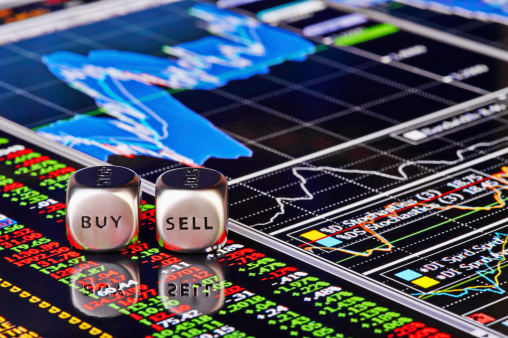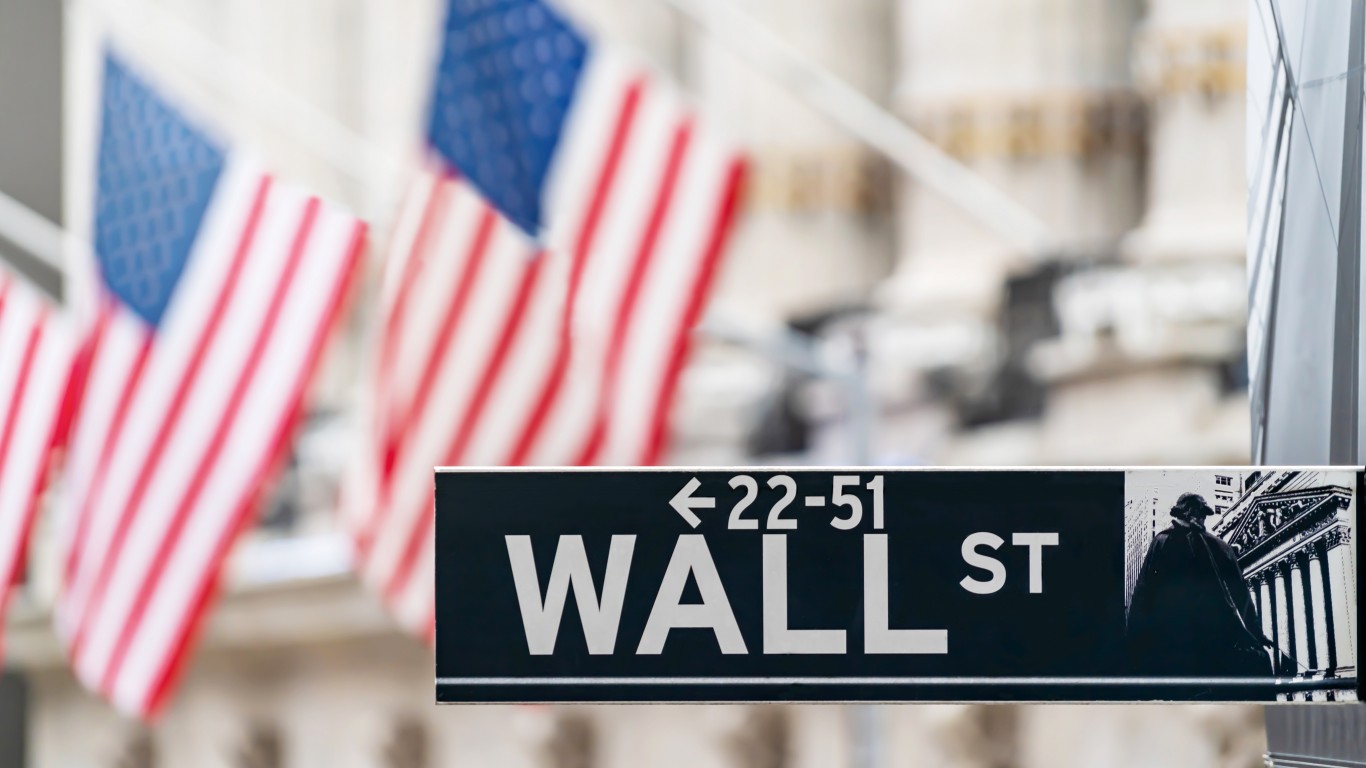Now that stocks have bounced off of lows, many investors are looking for those that either offer great value or that are taking very proactive shareholder-friendly measures. When it comes to returning capital to shareholders, the two yardsticks that are the easiest to see immediately are share buyback plans and dividends. And shareholders love it even more when companies get more aggressive on stock buybacks or when companies are raising their dividends.
24/7 Wall St. has tracked multiple dividends and buybacks in September, but at the mid-month mark there have been eight companies that have had dividend or buyback announcements that are simply too big to ignore. We have included data on the size of buybacks or on the magnitude of the dividend hikes. Color has also been added on the yield or how each buyback plan compares to trading volume or to the overall size of the company. Additional color has been added as well.
These are the eight dividends and stock buyback plans so far in September that are simply too big to ignore.
American Tower
American Tower Corp. (NYSE: AMT) has yet another dividend hike. The company seriously needs to hire a new press release writer, because its release merely said that its board of directors “has declared its quarterly cash distribution of $0.46 per share on shares of the Company’s common stock. The distribution is payable on October 7, 2015 to such stockholders of record at the close of business on September 23, 2015.” What matters here is that American Tower keeps juicing up its dividend, and the yield is now finally above the 2% mark.
ALSO READ: 4 Energy Stocks That Should Outperform During Interest Rate Hikes
When American Tower converted to a real estate investment trust (REIT), it had a tiny yield that was unlikely to entice REIT investors. Now trading at $89.26, it has a 52-week trading range of $87.95 to $106.31, and its consensus analyst price target is $114.16. While the telecom carriers are at war with each other, American Tower gets to use the arms-dealer model by selling its services to every carrier. Its portfolio is roughly 97,000 communications sites.
Assurant
Assurant Inc. (NYSE: AIZ) made two big splashes at once. It is selling its employee benefits business for $940 million to Sun Life Financial for nearly $1 billion, and it simultaneously announced an enhanced capital management plan to return additional capital to shareholders. Assurant hiked its dividend by a whopping 67%, up to $0.50 from $0.30 per share. It also authorized the repurchase of up to an additional $750 million of its common stock, which is impressive for a $5 billion market cap.
At $76.82, Assurant has a 52-week range of $59.73 to $80.08 and a consensus target price of $81.86. Merrill Lynch was much more bullish. Assurant’s new dividend yield will jump from 1.6% or so up to a very impressive 2.6%. That $750 million, if spent in short order, would represent almost 15% of its entire outstanding share base. Institutions are shown to own almost the entire company, with the top 10 holders owning close to 40% of the float alone. That buyback is close to 10 million shares at prevailing prices, which is about 14 days worth of volume.
ALSO READ: America’s Best Companies to Work For
Citrix Systems
Citrix Systems Inc. (NASDAQ: CTXS) may have an activist dream plan for billions worth of buybacks ahead with Elliott Management taking a 7% stake or so this year, with the activist aiming for shares to rise to north of $90 if the market cooperates. Citrix announced in September that its board of directors authorized up to an additional $500 million worth common stock to be repurchased. This is on top of existing buybacks.
In its fiscal year 2014, Citrix bought back 26.1 million shares (21.8 million of which were under an accelerated share repurchase agreement) at an average price of $64.00, for a total spend of $1.67 billion. Shares are now trading at about $70.50, and the market cap is $11.3 billion. Its consensus price target is $76.61 and its 52-week range is $56.47 to $78.42.
H&R Block
H&R Block Inc. (NYSE: HRB) has scored handily since getting out from under its H&R Block Bank. Now it is back to a tax-prep and financial services shop. The company’s divestment completion was followed with the news at the start of September that its board of directors approved a whopping $3.5 billion to be allocated for share buybacks. Some $1.5 billion was earmarked for a “modified Dutch auction” tender offer for up to $1.5 billion in shares at “not less than $32.25 and not greater than $37.00” with an expiration at the close of business on Friday, October 2, 2015.
While this was under a new credit facility, H&R Block’s market is just under $10 billion now, with shares at $36.15, but its stock was 10% lower and closer to $33.00 when the announcement was made. H&R Block shares have a consensus price target of $41.70 and a 52-week range of $27.42 to $36.29.
ALSO READ: 4 Top Jefferies New Growth Stock Picks to Buy Now
JD.com
As one of Alibaba’s competitors, JD.com Inc. (NASDAQ: JD) has been slaughtered with the woes in China. Alibaba announced a buyback, which seemed way too soon to do. Now JD.com is out with a buyback announcement of its own after its shares were shelled during the China sell-off. To show just how bad the drop was, shares fell from almost $35 to under $25 from August 5 to August 20 alone.
To stave off the bleeding, JD.com’s board of directors authorized a share repurchase program of up to $1 billion worth of its American depositary shares over the next two years. JD.com has a market cap of $33 billion. This represents around 80 million shares at current prices, which translates to more than seven days worth of trading volume and to just over 6% of its outstanding shares. At $24.26, it has a 52-week range of $21.55 to $38.00.
Monster Beverage
Monster Beverage Corp. (NASDAQ: MNST) already had a $200 million buyback plan. After the close of trading on Friday came an official announcement that its board of directors has authorized a new share buyback plan that will allow the company to repurchase of up to $500 million of its outstanding common stock. The maker of energy drinks has said that there was no availability remaining under the previously authorized $200 million share repurchase program.
Monster fans have three things to consider here. The first is that the new $500 million is against a $27 billion market cap, and the second is that its Coca-Cola partnership became official and effective in June, adding $2 billion to its books. The third issue would be the impact of the new case and the buyback’s impact on the balance sheet and the Coca-Cola stake. At $132.77, Monster has a consensus price target of almost $160.00 and a 52-week range of $88.93 to $155.83.
ALSO READ: 5 Oil and Gas Stocks Analysts Want You to Buy Now
NGL Energy Partners
NGL Energy Partners L.P. (NYSE: NGL) may have just started something almost unheard of, even if the size sounds small. The board of directors of its general partner authorized a unit repurchase program, where NGL can spend up to $45 million to repurchase outstanding units, and this is fairly accelerated as the pact is only through March 31, 2016. While NGL has a market cap of $2.3 billion and $45 million does not sound like much, this represents more than 2 million shares at current prices, and is about seven days worth of average trading volume. Trading at $21.81, it has a 52-week range of $21.00 to $43.00.
While NGL is not obligated to spend the capital, it is close to unheard of for a master limited partnership (MLP) to repurchase units. MLPs are generally consumers of capital. Its distribution yield equivalent is also north of 10%. Its quarterly report in August was shown to be another quarter with improved adjusted EBITDA and a continued increase in its distribution to unit holders. The company also said that it was very excited about its slate of internal growth projects to continue delivering growth. NGL further said that it is pursuing certain acquisitions and joint venture opportunities. This MLP has five primary businesses: crude oil logistics, water solutions, liquids, retail propane and refined products and renewables.
ALSO READ: Huge Energy Trade Highlights Recent Insider Buying
Disney
While not exactly announcing a new buyback plan, but what Walt Disney Co. (NYSE: DIS) did was buy shares aggressively after the stock sold off handily. After listening in on the call at a Merrill Lynch conference this week, 24/7 Wall St. was among the first to report that COO Tom Staggs confirmed that Disney was aggressively buying back its stock during and after the selling panic that took place in August and September.
While Disney will continue looking for growth investments, the company also confirmed just how aggressive it wants to be using strong cash flows for returning capital to shareholders. Staggs said that Disney took advantage of buying back stock at “meaningfully lower” prices, and he even said he thought that reaction in the shares had been overdone. We do not know what days Disney bought back stock for an August or September timing, but the company spent a whopping $2.4 billion buying back shares since the sell-off started. That takes the total spent to about $5.6 billion in total buybacks for fiscal 2015 (ending September), and Staggs said that Disney plans to still spend $6 billion to $8 billion in share buybacks in fiscal 2016.
ALSO READ: America’s Fastest Growing Jobs
Is Your Money Earning the Best Possible Rate? (Sponsor)
Let’s face it: If your money is just sitting in a checking account, you’re losing value every single day. With most checking accounts offering little to no interest, the cash you worked so hard to save is gradually being eroded by inflation.
However, by moving that money into a high-yield savings account, you can put your cash to work, growing steadily with little to no effort on your part. In just a few clicks, you can set up a high-yield savings account and start earning interest immediately.
There are plenty of reputable banks and online platforms that offer competitive rates, and many of them come with zero fees and no minimum balance requirements. Click here to see if you’re earning the best possible rate on your money!
Thank you for reading! Have some feedback for us?
Contact the 24/7 Wall St. editorial team.



